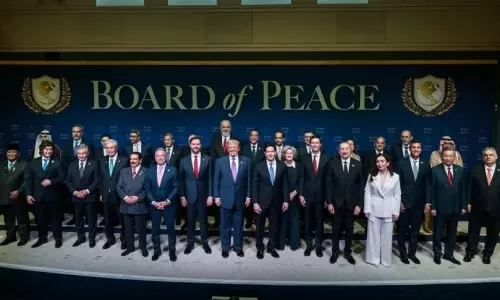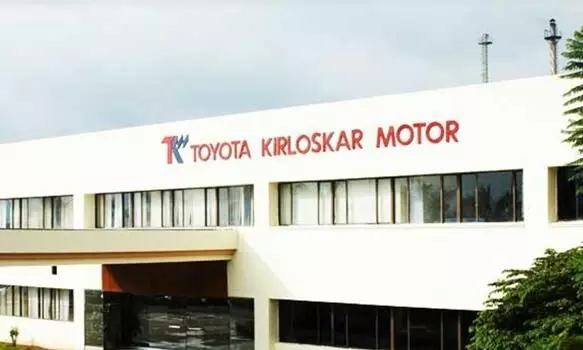
"We won't exit India, but we won't scale up",Toyota to halt its expansion in India blaming high taxation
text_fieldsBangalore: As a blow for Prime Minister Narendra Modi's attempt to lure global companies to offset the deep economic malaise brought on by the coronavirus pandemic, Toyota Motor Corp. decided not to expand further in India. The Japanese automaker blamed high tax regime existing in India for the decision.
"In the absence of any reforms, we won't exit India, but we won't scale up." said Shekar Viswanathan, vice chairman of Toyota's country unit, Toyota Kirloskar Motor.
The government keeps taxes on cars and motorbikes so high that companies find it hard to build scale. The high levies also put owning a car out of the reach of many consumers, meaning factories are idled and jobs aren't created, he said.
While its Indian unit Toyota Kirloskar Motor Pvt Ltd, will remain in business, it will not scale up operations, a senior executive of the company told Bloomberg.
"The message we are getting, after we have come here and invested money, is that we don't want you," Mr Viswanathan said in an interview
Toyota Kirloskar Motor is the fourth largest car maker in India after Maruti Suzuki India Ltd, Hyundai Motor India Ltd and Mahindra & Mahindra Ltd (M&M). Toyota Kirloskar Motor is a joint venture between Toyota Motor Corp and the Kirloskar group. Toyota holds 89% stake in the joint venture while the balance 11% is owned by Kirloskar group. It began operating in India in 1997.
The Goods and Services Tax (GST) levied on cars and bikes is at 28 per cent.
In addition, there is a cess ranging from 1% to 15% levied by the government, depending on the class of the vehicle.
As is the practice in automobile market, manufacturers and dealers offer a range of freebies or services or warranty to attract buyers in a very competitive business. Prior to GST, all such free goods or services were not taxed. But all these are now subject to taxation under the GST. Since customers are reluctant to pay tax on free goods or services, it is the automaker or dealer who have to bear the burden of this additional tax.
Such punitive taxes discourage foreign investment, erode automakers' margins and make the cost of launching new products "prohibitive," Viswanathan said.
"You'd think the auto sector is making drugs or liquor," he said. Toyota, which also has an alliance with Suzuki Motor Corp. to sell some of Suzuki's compact cars under its own brand, is currently utilizing just about 20% of its capacity in a second plant in India.
Referring to what he says has become a pattern with successive governments in India, Viswanathan said that taxes on electric vehicles, currently 5%, will probably also go up once sales increase.
Though discussions are ongoing between ministries, India's Heavy Industries Minister Prakash Javadekar had said earlier this month that there may not be any immediate agreement on an actual reduction in taxes.
In 2017 General Motors Co. had quit the country while Ford Motor Co. which had once said it wanted India to be one of its top three markets by 2020 decided last year to move most of its assets in India into a joint venture with Mahindra & Mahindra Ltd. This effectively ended independent operations of Ford in the country which struggled for more than two decades to win over buyers.
(With inputs from various agencies)

















